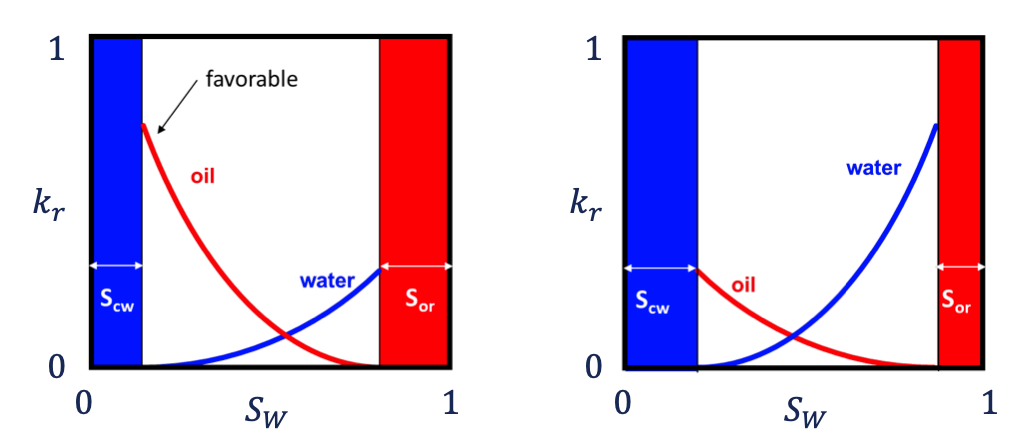Reservoir KNW3
1/20
There's no tags or description
Looks like no tags are added yet.
Name | Mastery | Learn | Test | Matching | Spaced | Call with Kai |
|---|
No analytics yet
Send a link to your students to track their progress
21 Terms
displacement efficiency factors
capillary pressure
relative permeability
interfacial tension
the work that is required to increase the interfacial area [N/m] = tension between two fluids
surface tension
the tension of a liquid-air interface
capillary pressure
the pressure difference across the interface between two immiscible fluids.
wetting phase
When two immiscible fluids are in contact with a solid surface, one fluid is usually attracted more strongly than the other fluid. The more strongly attracted phase is the called the wetting phase.
wetting classification
𝜃 = 0 → we have a complete water wet system
𝜃 < 90° → water wet
𝜃~90° → the system is intermediate or neutral wet
𝜃 > 90° → oil wet system
wetting factors
temp
fluid composition
Effect of Heterogeneity and Permeability on primary drainage of Pc
lower permeability = smaller pores => higher Pc
higher heterogeneity = wider range of pore => wider range of Pc
hysteresis
the result differs depending on whether water is displacing oil
reasons of hysteresis
contact angle hysteresis
trapping mechanism
irreversible changes of interfacial area
trapping curve
the relationship between the initial and residual fluid phase saturation
MICP measurement
Sample is placed in the equipment and the sample chamber is evacuated
Pressure is increased in steps and the mercury intrusion volume is measured
Measurement up to 60,000 psi mercury pressure
miscible displacement
both fluids are miscible in all proportions
immiscible displacement
in ideal immiscible displacement, there is no mutual phase participation and an interfacial tension (IFT) between the fluids
relative permeability
the ratio of the effective permeability of that phase to the absolute permeability
effective permeability
a measure of the ability of that phase to flow in the presence of other fluid phases.
absolute permeability
the measurement of the permeability, conducted when a single fluid, or phase, is present in the rock
Effect of Wettability on Relative Permeability
Water wet → more favorable oil mobility
Oil wet → lower residual oil saturation

Wettability
property influencing the interactions between reservoir rock components and pore filling fluids, affecting fluid distribution and flow dynamics during production processes.
Water wet
the rock/mineral surface is coated with water, while oil and gas occupy the central position of the largest pores
Oil wet
the rock/mineral surface is coated with oil, while water occupy the central position of the largest pores